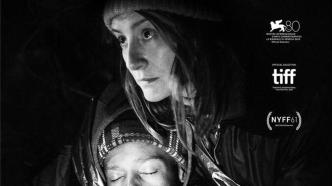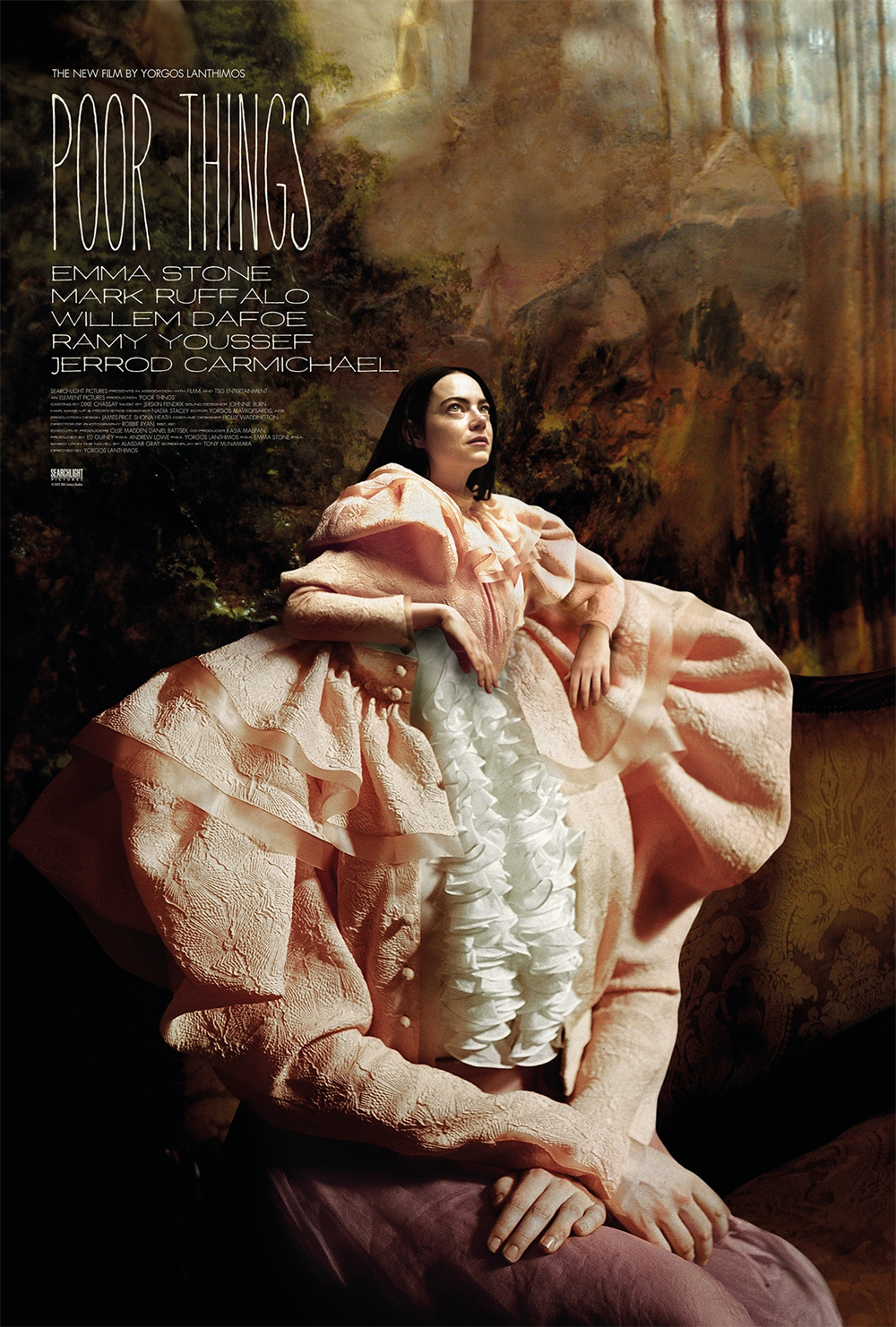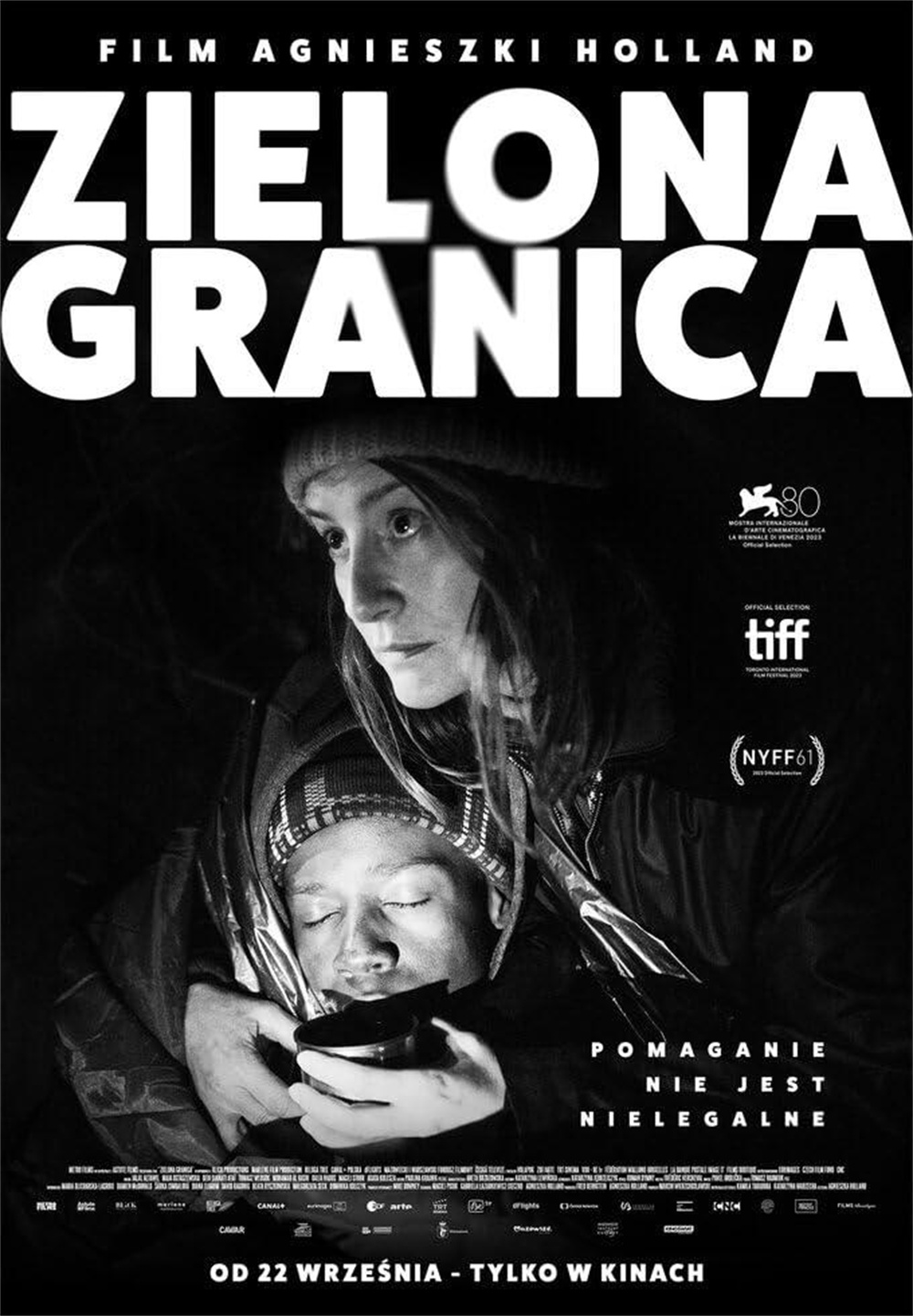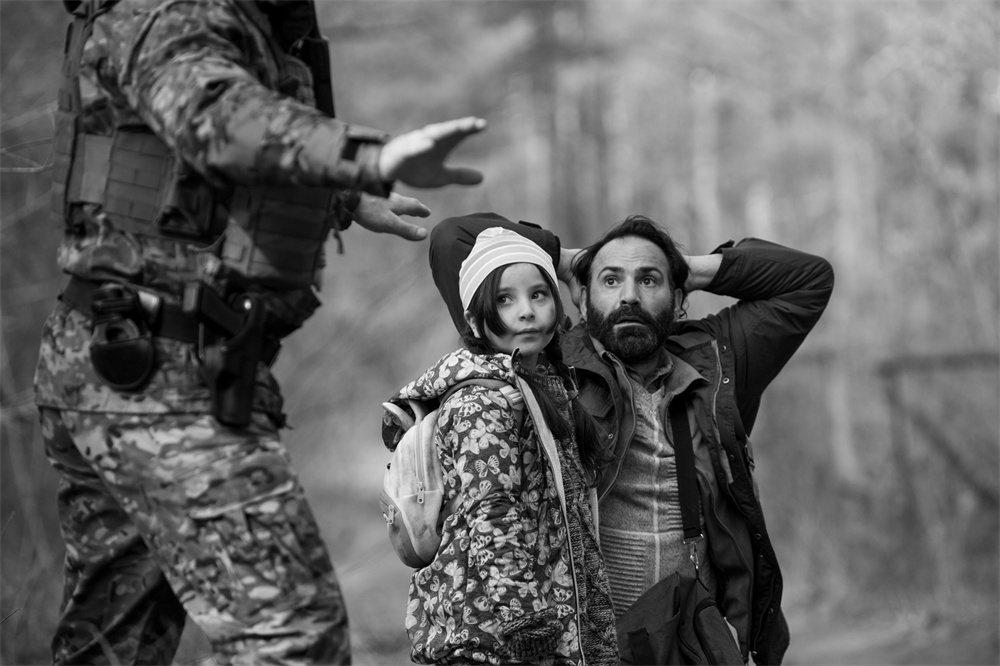
The 80th Venice Film Festival will end on the evening of September 9 local time. At present, among all the 23 films shortlisted for the main competition unit, only the three films "Memory", "Out of Season" and "Woman Of" are scheduled to be released on September 8 The premiere production has yet to be officially unveiled.
Looking at the 20 participating films that have been screened this year, Poor Things directed by Greek director Yorgos Lanthimos has a thriving reputation and has been recognized by almost all participating film critics. There are a total of 44 film reviews on the film review website "Rotten Tomatoes", and the freshness is as high as 100%, but I don't know if the jury led by the director of "La La Land" Damian Chazelle will agree with the film critics , awarded the Golden Lion to Emma Stone's new work from La La Land.

"Poor Things" poster
In addition to "Poor Thing," Polish director Agnieszka Holland's "Green Border" (Green Border) is said to have won high praise from many film critics. The 74-year-old Holland has been filming for half a century. His works focus on serious themes such as politics and history. He has participated in the competition for the Golden Lion Award in Venice and the Golden Bear Award in Berlin several times in the past, but he has not yet won the highest honor. .
"Green Border" takes the border between Belarus and Poland as the background, and tells a realistic story about a group of refugees from the Middle East and Africa who unfortunately become little pawns in the geopolitical changes, whose fate can be manipulated by others. Unexpectedly, before and after the film's world premiere on September 5, the film drew criticism from high-level Polish government officials, and immediately became the focus of the Venice Film Festival.

"Green Border" poster
On the social media platform Twitter, the current Polish Justice Minister Zbigniew Ziobro (Zbigniew Ziobro) posted a post on Monday criticizing "Green Frontier" and director Holland, comparing it to German films during the Nazi era. "During the Third Reich, the Poles were slandered as bandits and murderers in the political propaganda films produced by the Germans. Now, they have successors like Agnieszka Holland." The Minister of Justice said wrote.
Later, in an interview with the media, Joblow further accused director Holland of being an accomplice in Russia's disinformation campaign and "distorting and tarnishing the image of the Polish people" in the new film. Polish Interior Minister Mariusz Kaminski later criticized Holland for "deliberately manipulating the audience's emotions," accusing the film of "a barbaric attack on those who are doing their best to defend Poland's and even Europe's borders." Polish soldiers." In addition, the current justice of the Polish Constitutional Court, Krystyna Pawlowicz (Krystyna Pawlowicz) also posted a post on social media criticizing director Holland: "I hate the Polish people, I hate it to the bone, so I made such a stupid, False, irresponsible, shameful movie.”

"Green Border" stills
In response to criticism, the director is also unwilling to show weakness. She issued a public statement through the media a few days ago, saying that she has hired a lawyer and will formally file a complaint against Justice Minister Zbigniew Joblow in a week, unless the other party Publicly apologize to her within seven days and donate to the Polish "World War II" Holocaust Survivors Children's Foundation.
For Holland, who is a Jewish daughter, not only her grandparents were victims of the Holocaust, but also her masterpieces "Europa, Europa" and "Darkness Fills" are all about the grief of the Nazis killing Jews. In the past, she has always been an iconic figure of anti-fascism and anti-Nazi in the Polish film industry. Now the Minister of Justice has labeled him as a successor to the Nazi film. One can imagine the feeling of grievance and anger.
At the same time, the Polish Association of Women Filmmakers, the European Film Academy, and the leading actors who participated in the film have publicly stated their positions and firmly stand with director Holland. In their view, critics in Poland have already criticized the film and attacked the creators before they have seen the film, which is a wrong way to suppress freedom of speech and creation. It is reported that "Green Frontier" is scheduled to be screened in Poland on September 22, but Holland has already stated that in view of the current situation and for personal safety reasons, she may not participate in the promotional activities of the film as originally planned.
The source of this turmoil lies in the turn of summer and autumn in 2021. A large number of refugees from the Middle East gathered in the border area between Belarus and Poland in order to enter the hinterland of Europe. In order to prevent refugees from crossing the border, Poland, the eastern gateway of the European Union, quickly deployed tens of thousands of soldiers in the border area, erected a 180-kilometer-long barbed wire fence, and established a martial law zone. As a result, a large number of refugees in a dilemma were trapped in the dense forests in the border area, and encountered a severe survival crisis after winter. The Polish government and the Belarusian government also criticized each other for violating the humanitarian spirit around the refugee issue.
At that time, in Poland, there were two completely different opinions on how to deal with these refugees. The party represented by Holland believes that as a member of the European Union, the Polish government should allow these refugees to enter the country, while the high-level government represented by Minister of Justice Zbigniew Joblow believes that these refugees will threaten Poland. interests of the people. Not only in Poland, but also in other parts of Europe, there are many supporters for the two opinions, and the contradictions seem to be becoming more and more difficult to reconcile. And the division of opinions within the EU due to the refugee issue is becoming more and more obvious. This can be seen from the fact that at least four of the 23 main competition films at this year's Venice Film Festival focus on refugee themes.


